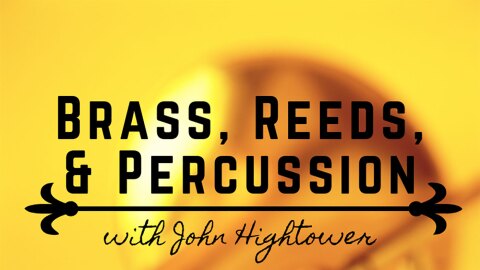The Latest from WLRH
Microwave Dave and the Nukes visit Ridgecrest Elementary School in Huntsville as part of the program, 'Concerts in the Classroom.' We learn more in this feature story.
A free speaker series in partnership with The Orion Amphitheater celebrating art, culture and self-expression! In recognition of May as Mental Health Awareness Month, conversations in this installation will explore the intersection of art and mental health.
WLRH is proud to once again host a porch during PorchFest. PorchFest takes place in Huntsville’s Five Points neighborhood hosted on a variety of neighborhood porches inviting the public to explore our amazing original music scene!
The Latest from NPR
-
House Speaker Mike Johnson met with a group of Jewish students at Columbia University who say they've experienced antisemitic speech and harassment from protesters on and off campus.
-
Women under 60 can benefit from hormone therapy to treat hot flashes and other symptoms of menopause. That's according to a new study, and is a departure from what women were told in the past.
-
The New York State Court of Appeals overturned Weinstein's 2020 conviction last week, ruling that his trial was unfair.
-
Gov. Katie Hobbs plans to sign the repeal of the law that bans nearly all abortions — keeping the state's 15-weeks-of-pregnancy ban in place. But it's unclear when the repeal takes effect
Listen to the Latest Podcasts from WLRH
-
-
Huntsville poet Ginny Gilbert offers a look at the future if we're not mindful of our actions now.
-
This edition of Brass, Reeds, and Percussion features music of the Danish organist and composer Dietrich Buxtehude, who lived from 1637 to 1707 and is considered one of the important composers of the 17th century. He was born in Holstein, Germany, which was actually part of Denmark at the time of his birth. Buxtehude influenced and was respected by other Boroque composers such as Georg Michael Telemann, Johann Sebastian Bach, and George Frideric Handel. Bach walked 250 miles to hear Buxtehude play. When Teleman and Handel visited him, Buxtehude tried to talk them into taking his job and marrying his oldest daughter. This edition features a wind-band arrangement of a Buxtehude organ toccata.
-
Jiri Druschetzky was a Czech composer, oboe player, and timpanist who lived from 1745 to 1819. During his lifetime, the Czech Republic was part of the Austro-Hungarian Empire. Druschetzky joined a band of an Austro-Hungarian infantry regiment and was stationed in a number of locations, including Vienna. He was a certified military drummer and eventually became the music director for a Hungarian nobleman who lived in Bratislava in what is today known as Slovakia. This was a time when noblemen typically had their own orchestras or at least a harmoniemusik, the German word used for the wind band from roughly 1775 to 1825. Druschetzky wrote symphonies, operas, and works for a variety of other musical groups. Today’s edition of Brass, Reeds, and Percussion features one of his partitas for harmoniemusik, which has parts for percussion.
Latest Stories from WLRH
Arts & Lifestyle
Business
Sports
































